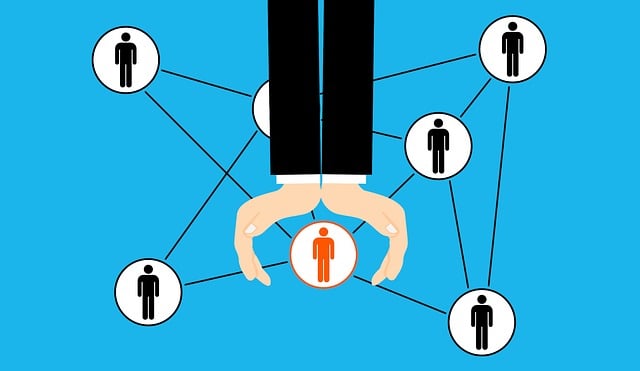Commercial Liability Insurance is a crucial safety net for businesses, protecting them from financial loss due to liability claims. It covers a broad spectrum of risks, from property damage and personal injury to professional negligence, offering tailored solutions through general liability, professional liability, and products/completed operations coverage. By choosing the right insurer, evaluating their reputation and policies, and understanding policy limitations, businesses can ensure comprehensive protection. Efficient claim management processes further mitigate risks, enabling swift resolution and business continuity.
Commercial insurance is a vital shield for businesses, protecting them from financial losses due to liability claims. This comprehensive guide delves into the intricacies of commercial liability insurance, offering a detailed overview for business owners. We explore who needs this coverage, different policy types, key coverage elements, and selection criteria. Additionally, we shed light on common exclusions, claim management, and resolution processes, empowering readers to make informed decisions in navigating the complex landscape of commercial insurance.
Understanding Commercial Liability Insurance: A Comprehensive Overview

Commercial Liability Insurance is a crucial component of risk management for businesses, offering protection against potential claims and lawsuits. This type of insurance covers various liability risks that arise in the course of commercial activities. When a business faces legal repercussions due to bodily injury or property damage caused to others, Commercial Liability Insurance steps in to safeguard financial stability. It provides a safety net by covering settlement costs, defense expenses, and medical bills, ensuring businesses can navigate legal challenges without incurring significant financial burdens.
The scope of Commercial Liability Insurance is extensive and tailored to meet the unique needs of different industries. It typically includes general liability coverage, which is essential for everyday business operations, and specialized policies for specific risks like professional services or product liability. By understanding these insurance options, businesses can make informed decisions to mitigate legal risks and ensure their long-term success in an increasingly competitive market.
Who Needs Commercial Liability Coverage?

Every business, regardless of its size or industry, faces potential risks that can lead to liability claims. These claims can result from various incidents such as property damage, personal injury, or professional negligence. Commercial liability coverage is designed to protect businesses against these unforeseen events and their financial consequences.
Business owners who interact with customers, clients, or employees on a regular basis should consider commercial insurance as a necessary investment. This includes retail stores, restaurants, service industries, construction companies, and professional services firms. By obtaining commercial liability coverage, businesses can safeguard themselves from the high costs associated with legal fees, settlements, and court orders in the event of a claim.
Types of Commercial Liability Policies

Commercial liability insurance is a crucial component for businesses, offering protection against potential risks and claims. These policies are designed to cover various liabilities that may arise in the course of business operations. The main types include general liability insurance, professional liability insurance (also known as errors and omissions coverage), and products/completed operations liability insurance.
General liability is a broad policy that protects businesses from common risks like property damage, personal injury, and medical expenses due to accidents on their premises. Professional liability, on the other hand, is tailored for service-based businesses and shields against claims of negligence or malpractice in professional services. Products/completed operations liability is specific to manufacturers and sellers, covering damages from defects in goods sold or completed projects. These policies ensure that businesses can navigate legal challenges and financial losses without unduly burdening their resources.
Key Coverage Elements in Commercial Insurance

Commercial insurance policies typically include several key coverage elements that protect businesses from potential risks and financial losses. One of the most fundamental aspects is general liability coverage, which shields against claims of bodily injury or property damage occurring on the insured premises. This includes accidents involving customers, employees, or third parties, ensuring business owners are not held liable for unforeseen incidents.
Additionally, commercial insurance often incorporates professional liability protection, crucial for businesses offering services that carry inherent risks. This covers legal expenses and damages arising from negligence in service provision, such as errors or omissions, advertising injuries, or breach of contract. Moreover, many policies include coverage for business interruption, providing financial support during unforeseen events that halt operations, like natural disasters or civil unrest.
How to Choose the Right Liability Insurance Provider

When selecting a commercial liability insurance provider, start by understanding your business’s unique needs. Different industries face distinct risks; therefore, an ideal insurer offers specialized coverage tailored to your sector. Research various providers and their policies to find one that aligns with your requirements. Look for comprehensive options that protect against common liabilities like property damage, personal injury, and professional errors or omissions.
Consider reputation and financial stability as key factors. Check the provider’s history, customer reviews, and ratings to gauge their reliability and service quality. Additionally, ensure they have a solid track record of prompt claims processing and settlement. Verifying these aspects will help you make an informed decision, ensuring you and your business are adequately protected with the right commercial insurance.
Common Exclusions and Limitations in Commercial Liability Policies

Commercial liability insurance is a vital shield for businesses, but it’s crucial to understand its exclusions and limitations. Many policies won’t cover claims related to products after they’ve left your hands—this is known as the “product exclusion.” For instance, if a customer suffers an injury or illness from a product you sold, this type of commercial insurance typically wouldn’t apply.
Another common limitation involves premises liability. Policies often exclude injuries that occur on your property due to unsafe conditions you should have known about and didn’t fix. This could include slips and falls, tripping hazards, or other incidents caused by poor maintenance. Understanding these exclusions is essential for businesses to adequately protect themselves and ensure they’re not left vulnerable in the event of a claim.
Claim Management and Resolution in Commercial Insurance

In the realm of commercial insurance, efficient claim management and resolution are paramount for businesses aiming to mitigate risks and protect their financial interests. When a claim is made, insurers dedicate specialized teams to handle and resolve it promptly. This process involves several steps, including receiving and reviewing the claim, conducting investigations, verifying details, and negotiating settlements or resolutions with claimants.
Effective claim management ensures that businesses experiencing losses or damages due to covered events receive fair compensation while minimizing interruption to their operations. Commercial insurance policies often include provisions for efficient claim handling, outlining timelines, communication protocols, and dispute resolution mechanisms. By adhering to these guidelines, insurers help businesses navigate the claims process smoothly, enabling them to focus on recovery and rebuilding rather than legal battles.
